CBD or Delta 8 for Pain Relief—Which Is Better?
Pain management has evolved significantly over the past decade, with many people seeking natural alternatives to traditional pharmaceuticals. Among the most promising options are cannabinoids, particularly CBD and Delta 8 THC. These hemp-derived compounds have gained tremendous popularity for their potential therapeutic benefits, but choosing between them can be challenging. Understanding their unique properties, effects, and applications is crucial for making an informed decision about which might work better for your specific needs.
Understanding CBD: The Non-Intoxicating Champion
Cannabidiol (CBD) has emerged as one of the most widely studied and accepted cannabinoids in the wellness industry. Unlike its psychoactive cousin THC, CBD doesn't produce the "high" associated with cannabis use, making it an attractive option for those seeking therapeutic benefits without intoxication. When sourced from quality cbd hemp flower, CBD offers a natural approach to managing various types of discomfort.
The mechanism behind CBD's potential pain-relieving properties lies in its interaction with the body's endocannabinoid system (ECS). This complex network of receptors and enzymes plays a crucial role in regulating pain perception, inflammation, mood, and various other physiological processes. CBD doesn't directly bind to the primary cannabinoid receptors but instead influences them indirectly, potentially modulating pain signals and reducing inflammatory responses.
Research suggests that CBD may be particularly effective for managing chronic pain conditions, including arthritis, neuropathic pain, and inflammatory disorders. Its anti-inflammatory properties are well-documented, making it an excellent choice for those dealing with conditions where inflammation contributes to discomfort. Many users report that high-quality cbd flower provides consistent relief without the side effects commonly associated with conventional pain medications.
The beauty of CBD lies in its versatility and safety profile. Most people can use CBD throughout the day without experiencing impairment, making it suitable for those who need to maintain focus and productivity while managing their discomfort. This non-intoxicating nature has made CBD flower increasingly popular among professionals, athletes, and anyone seeking natural pain relief without compromising their daily activities.
Delta 8 THC: The Gentle Psychoactive Alternative
Delta 8 THC represents a middle ground between CBD and traditional Delta 9 THC. This cannabinoid occurs naturally in hemp plants but in much smaller concentrations than CBD or Delta 9 THC. What makes Delta 8 particularly interesting for pain management is its unique psychoactive profile – it provides therapeutic benefits with a much milder euphoric effect compared to Delta 9 THC.
The molecular structure of Delta 8 differs slightly from Delta 9 THC, with the double bond located on the eighth carbon chain instead of the ninth. This seemingly minor difference results in significantly different effects. Users typically report that Delta 8 provides a clear-headed, focused high without the anxiety or paranoia that some experience with Delta 9 THC. This makes it an appealing option for those who want stronger pain relief than CBD alone might provide but don't want the intense psychoactive effects of traditional THC.
Delta 8's pain-relieving properties stem from its direct interaction with CB1 and CB2 receptors in the endocannabinoid system. This direct binding action may result in more pronounced analgesic effects compared to CBD's indirect approach. Many users find that Delta 8 is particularly effective for managing acute pain episodes, muscle tension, and conditions that benefit from both pain relief and mild relaxation.
The mild euphoria associated with Delta 8 can actually be beneficial for pain management in several ways. The relaxed mental state can help break the cycle of pain-induced stress and tension, while the slight mood elevation can provide psychological relief from chronic discomfort. This dual action – addressing both the physical sensation of pain and its emotional impact – makes Delta 8 a comprehensive option for many users.
Comparing Effectiveness: CBD vs Delta 8 for Different Types of Pain
The choice between CBD and Delta 8 often depends on the type and severity of pain you're experiencing. For mild to moderate inflammatory pain, such as that associated with exercise recovery or minor joint discomfort, CBD often provides sufficient relief. Its anti-inflammatory properties work gradually to address the root cause of inflammation-based pain, making it ideal for long-term management strategies.
Chronic pain conditions like fibromyalgia, arthritis, or neuropathy may respond well to either cannabinoid, but the choice often comes down to personal preference and tolerance for psychoactive effects. Some individuals find that CBD alone isn't strong enough for their severe chronic pain, making Delta 8's more potent effects appealing. The mild euphoria from Delta 8 can also help with the depression and anxiety that often accompany chronic pain conditions.
Acute pain situations, such as severe muscle spasms, intense headaches, or injury-related discomfort, might benefit more from Delta 8's stronger effects. The immediate relief provided by Delta 8, combined with its relaxing properties, can be particularly valuable when dealing with sudden onset pain that requires quick intervention.
Sleep-related pain issues present another interesting comparison point. While CBD can promote relaxation and potentially improve sleep quality, Delta 8's mild sedating effects might be more beneficial for those whose pain interferes with their ability to fall asleep or stay asleep throughout the night.
The Entourage Effect: Combining CBD and Delta 8
One of the most exciting developments in cannabinoid therapy is the growing understanding of the entourage effect – the theory that cannabinoids work better together than in isolation. Many users are discovering that combining CBD and Delta 8 provides a more balanced and effective approach to pain management than using either compound alone.
When used together, CBD and Delta 8 can complement each other's effects beautifully. CBD's anti-inflammatory properties and Delta 8's direct analgesic effects create a comprehensive pain management approach. The CBD can help modulate and balance Delta 8's psychoactive effects, creating a more controlled and predictable experience. This combination allows users to access the stronger pain-relieving benefits of Delta 8 while maintaining the clear-headed functionality that CBD provides.
The ratio of CBD to Delta 8 can be adjusted based on individual needs and tolerance levels. Those new to cannabinoids might start with a higher CBD to Delta 8 ratio, gradually adjusting as they become more comfortable with the effects. Experienced users might prefer more balanced ratios or even slightly Delta 8-heavy combinations for more pronounced pain relief.
Premium cbd flower bulk options often include naturally occurring trace amounts of various cannabinoids, including small amounts of Delta 8, providing a natural entourage effect. This natural combination found in quality hemp flower can be more effective than isolated compounds, as nature intended these cannabinoids to work synergistically.
Quality Matters: Choosing the Right Products
The effectiveness of CBD and Delta 8 for pain relief heavily depends on product quality, purity, and potency. With the rapid growth of the hemp industry, the market has become flooded with products of varying quality. Understanding what to look for can make the difference between effective pain relief and disappointment.
When shopping for cbd flower wholesale or retail products, third-party lab testing should be non-negotiable. These tests verify cannabinoid content, ensure the absence of harmful contaminants like pesticides and heavy metals, and confirm that THC levels comply with legal limits. Reputable suppliers provide easy access to these lab results, often called Certificates of Analysis (COAs).
The cultivation and processing methods significantly impact the final product's therapeutic potential. Organically grown hemp, properly cured and stored, maintains higher levels of beneficial compounds and terpenes. These aromatic compounds don't just provide flavor and aroma – they contribute to the therapeutic effects and can enhance pain relief through their own anti-inflammatory and analgesic properties.
For those interested in bulk cbd flower, understanding the different grades and processing methods is crucial. Premium flower typically consists of carefully hand-trimmed buds with optimal cannabinoid and terpene profiles, while cbd smalls – smaller buds from the same plants – often provide similar therapeutic benefits at a more accessible price point.
Dosage Considerations and Administration Methods
Finding the right dosage for pain relief requires patience and experimentation, as individual responses to cannabinoids vary significantly. Factors including body weight, metabolism, tolerance, severity of pain, and previous cannabis experience all influence optimal dosing. The general rule of "start low and go slow" applies to both CBD and Delta 8, though the approach differs slightly for each.
For CBD, most people begin with 10-25mg daily, gradually increasing until they find effective relief. CBD has a biphasic response curve, meaning that very low doses might not be effective, moderate doses provide optimal benefits, and very high doses might actually be less effective than moderate ones. This makes finding the "sweet spot" particularly important for CBD users.
Delta 8 dosing requires more caution due to its psychoactive nature. New users should start with 2.5-5mg and wait at least two hours before considering additional doses. The effects of Delta 8 can take 30 minutes to two hours to fully manifest, and taking too much too quickly is a common mistake that can lead to uncomfortable experiences.
The method of administration significantly affects both onset time and duration of effects. Smoking or vaping quality ultra pink cbd or Delta 8 flower provides the fastest onset – typically within minutes – but the effects may not last as long. This makes inhalation methods ideal for breakthrough pain or when quick relief is needed.
Edibles and tinctures take longer to take effect (30 minutes to 2 hours) but provide longer-lasting relief (4-8 hours). This slower onset but extended duration makes them excellent for managing chronic pain conditions that require consistent, all-day relief.
Legal Considerations and State Regulations
The legal landscape surrounding CBD and Delta 8 continues to evolve, with significant variations between states and even local jurisdictions. While the 2018 Farm Bill legalized hemp-derived products containing less than 0.3% Delta 9 THC at the federal level, individual states maintain the authority to regulate or prohibit these products within their borders.
CBD derived from hemp is legal in most states, but some maintain restrictions on certain forms or require specific licensing for retailers. Delta 8 faces more complex legal challenges, with several states explicitly banning it despite its hemp-derived status. Some states have created specific regulations governing Delta 8 products, including potency limits and testing requirements.
Before purchasing or using either CBD or Delta 8 products, research your local and state laws thoroughly. What's legal in one state may be prohibited in another, and these laws change frequently. Additionally, workplace drug testing policies may not distinguish between legal hemp-derived cannabinoids and prohibited substances, so consider your employment situation when making decisions about cannabinoid use.
The importance of purchasing from reputable sources cannot be overstated from a legal perspective. Products from licensed, compliant retailers like those offering $100/lb cbd flower are more likely to meet legal requirements and provide the quality assurance necessary for both safety and legal compliance.
Cost-Effectiveness and Value Considerations
Pain management can be expensive, especially for chronic conditions requiring ongoing treatment. When comparing CBD and Delta 8 for pain relief, cost-effectiveness becomes an important factor. Generally, CBD products tend to be more widely available and competitively priced due to established production and distribution networks.
Wholesale cbd flower options can provide significant savings for regular users, allowing them to purchase quality products in larger quantities at reduced per-gram costs. This approach is particularly beneficial for those using flower for daily pain management, as the cost savings can be substantial over time.
Delta 8 products often command higher prices due to the additional processing required to concentrate this minor cannabinoid. However, since Delta 8 may provide stronger effects, some users find they need smaller amounts, potentially balancing out the higher per-gram cost.
The therapeutic value extends beyond just the cost per gram. Consider the effectiveness, duration of relief, and impact on quality of life when evaluating cost-effectiveness. A slightly more expensive product that provides better pain relief and allows for reduced usage of other medications may offer superior overall value.
Potential Side Effects and Safety Considerations
While both CBD and Delta 8 are generally considered safe, understanding potential side effects helps users make informed decisions and use these products responsibly. CBD's side effect profile is remarkably mild, with most users experiencing no adverse effects at therapeutic doses.
Common CBD side effects, when they occur, include drowsiness, dry mouth, reduced appetite, and occasional digestive issues. These effects are typically mild and often resolve as the body adjusts to regular use. CBD can interact with certain medications, particularly those metabolized by the liver's cytochrome P450 system, so consultation with healthcare providers is advisable for those taking prescription medications.
Delta 8's side effects more closely resemble those of traditional THC, though typically milder. Users may experience dry mouth, red eyes, increased appetite, and mild cognitive impairment. The psychoactive nature of Delta 8 means it can affect coordination and reaction time, making it inappropriate for driving or operating machinery.
Both cannabinoids may cause drowsiness, which can actually be beneficial for pain management, especially when pain interferes with sleep. However, new users should be cautious about timing their doses to avoid unwanted sedation during times when alertness is required.
Emerging Research and Future Prospects
The scientific understanding of cannabinoids for pain management continues to expand rapidly. Current research suggests both CBD and Delta 8 show promise for various pain conditions, though much of the evidence remains preliminary. Clinical trials investigating CBD for chronic pain, neuropathic pain, and inflammatory conditions are ongoing, with early results showing encouraging potential.
Delta 8 research lags behind CBD studies, partly due to its more recent emergence in the market and regulatory complexities. However, anecdotal evidence and preliminary research suggest it may offer unique benefits for pain management, particularly for conditions that don't respond well to CBD alone.
The development of new cannabinoid combinations and delivery methods promises to enhance therapeutic options further. Products combining CBD, Delta 8, and other minor cannabinoids like CBG and CBN are showing promise for comprehensive pain management approaches.
Innovations in cbd thca flower and other specialized hemp products continue to expand options for consumers seeking natural pain relief alternatives. These products often contain unique cannabinoid profiles that may offer advantages for specific types of pain or individual biochemistries.
Making Your Decision: Factors to Consider
Choosing between CBD and Delta 8 for pain relief involves weighing multiple personal factors against the characteristics of each cannabinoid. Your tolerance for psychoactive effects plays a crucial role – those who want to avoid any intoxication should focus on CBD, while those comfortable with mild euphoria might benefit from Delta 8's stronger effects.
The nature and severity of your pain significantly influence the optimal choice. Mild, inflammation-based discomfort often responds well to CBD's gentle, sustained effects. More severe or acute pain might require Delta 8's stronger analgesic properties. Chronic pain sufferers might benefit from alternating between both or using combinations to address different aspects of their condition.
Lifestyle considerations matter significantly. Those needing to maintain peak mental performance throughout the day might prefer CBD's non-intoxicating effects, while those whose pain is worst in the evening or interferes with sleep might find Delta 8's mild sedating effects beneficial.
Budget and availability in your area also influence the decision. CBD products are more widely available and often more affordable, while Delta 8 options might be limited or more expensive depending on your location and local regulations.
Conclusion: Finding Your Optimal Pain Management Strategy
While anecdotal reports suggest CBD helps with mild discomfort and inflammation, Delta 8 may provide a stronger soothing effect with mild euphoria. The choice depends on your tolerance, experience, and state regulations. Some blend both CBD and Delta 8 to balance the psychoactive effect. Brands like Oregon Hemp Flower often carry a variety of cannabinoid products to help you experiment and find your sweet spot.
The journey to effective natural pain management is highly individual, requiring patience, experimentation, and often some trial and error. Neither CBD nor Delta 8 represents a universal solution, but both offer valuable tools in the pursuit of natural pain relief. Many users find that their optimal approach combines elements of both cannabinoids, adjusted based on their daily needs, pain levels, and life circumstances.
Success with cannabinoid-based pain management often depends on consistent use, appropriate dosing, and high-quality products from reputable sources. Whether you choose CBD for its gentle, non-intoxicating relief, Delta 8 for its stronger effects, or a combination of both, starting with quality products and professional guidance when needed provides the foundation for effective pain management.
Bullet Point Summary:
-
CBD is non-intoxicating, good for mild relief – Perfect for daily use without impairment, ideal for inflammation-based pain and long-term management strategies.
-
Delta 8 can offer stronger effects with light euphoria – Provides more potent pain relief with mild psychoactive effects, suitable for more severe or acute pain situations.
-
Combining both can produce an entourage effect – Using CBD and Delta 8 together may provide more comprehensive pain relief than either cannabinoid alone.
-
Always follow recommended serving sizes – Start with low doses and increase gradually to find your optimal amount while minimizing potential side effects.
-
Consult a healthcare provider for chronic issues – Professional medical guidance is essential for serious pain conditions and potential interactions with existing medications.

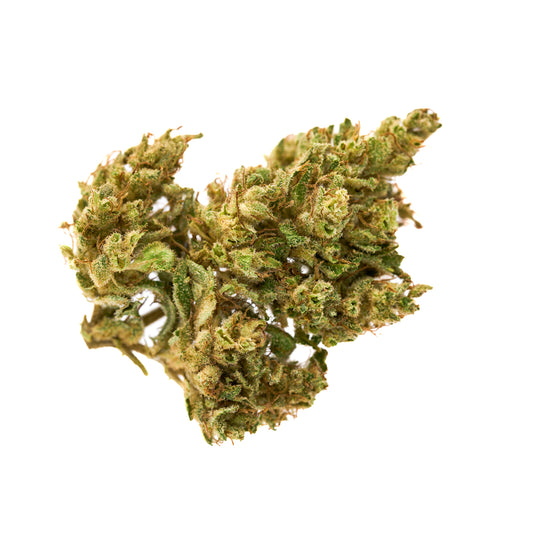
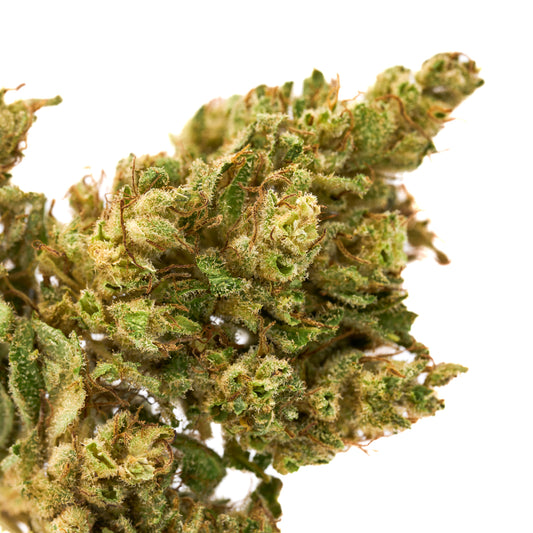
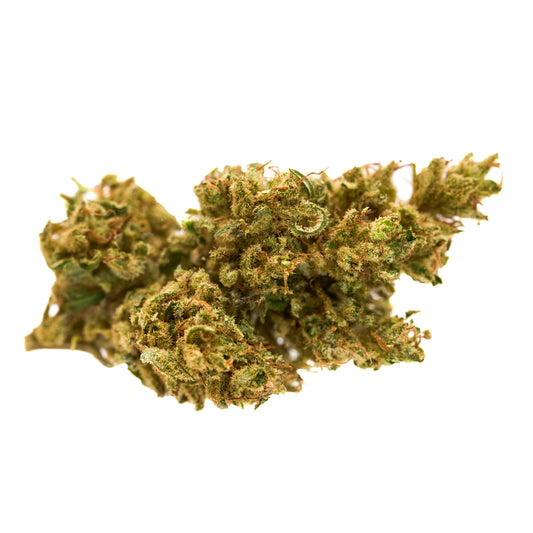
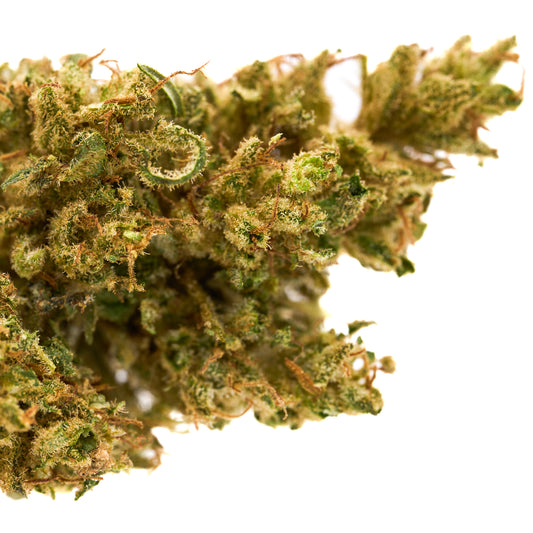
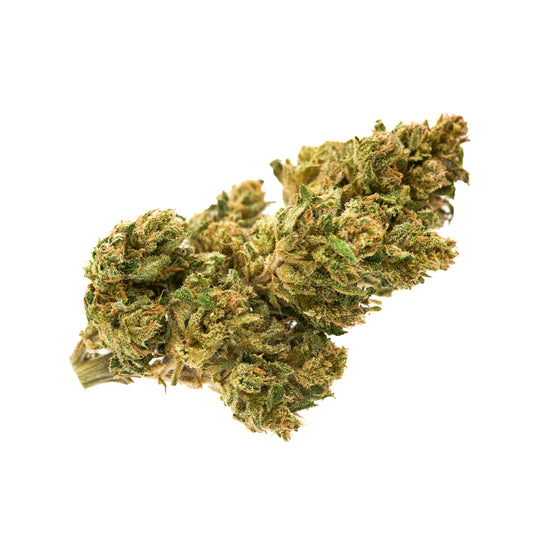
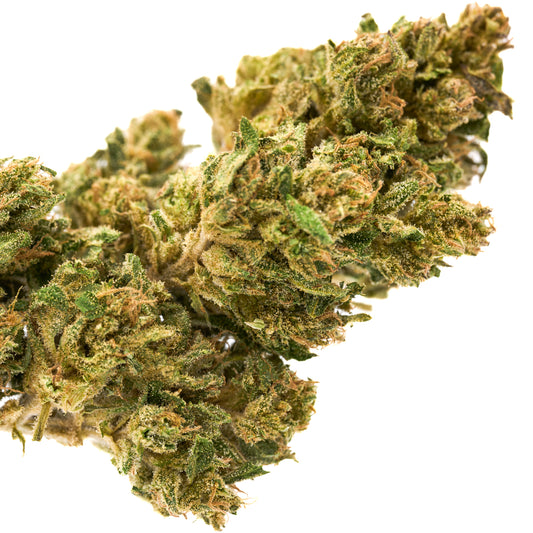





Leave a comment
Please note, comments need to be approved before they are published.